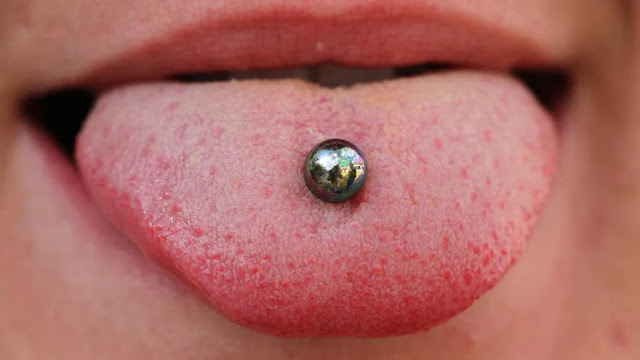Is it just a fashion statement, a desire to stand out, or something more personal? Tongue piercings often spark curiosity—and while they might seem like a modern trend, their story is far older and richer than most people realize.
A Ritual Rooted in Ancient Cultures
Long before tongue piercings appeared in the glass cases of modern piercing studios, they held deep spiritual significance. In ancient Mayan and Aztec cultures, piercing the tongue was far more than a cosmetic choice—it was a sacred ritual.

Priests would pierce their tongues during ceremonies to establish a connection with the gods. The blood that flowed wasn’t just symbolic; it was believed to create a spiritual link between the human and divine worlds. This ancient act wasn’t about rebellion or aesthetics—it was about transcendence and devotion. Wearing a tongue piercing today, unaware of its roots, is like carrying a talisman without knowing its power.
A Statement of Identity and Personal Freedom
In today’s world, tongue piercings are rarely spiritual. Instead, they’ve become a form of self-expression—a bold declaration of individuality. Much like a tattoo with hidden meaning, a tongue piercing says, “This is who I am.”
It’s personal, sometimes discreet, and often chosen for the freedom it represents. For many, it’s less about following a trend and more about claiming space in a world that often asks for conformity.
More Than Just Sensuality
Pop culture often gives tongue piercings a sensual or provocative reputation—and while that may be part of the appeal for some, it’s far from the whole story. People get their tongues pierced for all sorts of reasons: style, curiosity, identity, or the simple urge for something different.
For some, it reflects their connection to a subculture. For others, it’s a playful change or a subtle nod to rebellion. There’s no single reason—and that’s what makes it so personal.
Important Aftercare: Not Just a Pretty Piercing
While tongue piercings are relatively small, they require serious care. The mouth is full of bacteria, so good hygiene is essential to avoid infection.
After getting pierced, daily care becomes key: antiseptic mouthwashes, avoiding certain foods, and watching for signs of trouble during the healing process. Taking these steps seriously ensures the piercing heals properly and remains safe.
What a Tongue Piercing Really Says
That little piece of metal can say a lot—without speaking a word. It can symbolize spirituality, identity, aesthetics, or rebellion, depending on the person and the context.
In the end, a tongue piercing is more than just an accessory. It’s a silent form of communication, a statement crafted in metal and meaning—an individual story told in a single, shiny detail.

